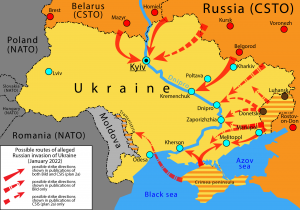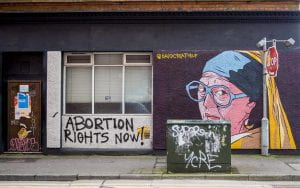This post is part of a short series of blog posts exploring the recent Russian invasion of Ukraine against the background rules of international law. The posts are based on presentations given at an event on the subject on 7 March that was organised by the University of Bristol Law School’s Centre for International Law. In this second blog post of the series, Dr Kathryn Allinson of the School of Law, University of Bristol, considers the possibility of invoking responsibility against Russia for their invasion of Ukraine.
Dr. Kathryn Allinson, University of Bristol Law School

In the early hours of 24 February, President Putin set out his justifications for the use of Russian military force against Ukraine. This was followed by the commencement of aerial strikes across Ukraine and the invasion by ground troops of Ukrainian territory. In this blog, I will explore the role that the international law on state responsibility (as articulated in the Articles on the Responsibility of States for Internationally Wrongful Acts (ARSIWA)) can play in responding to this conduct by Russia.



